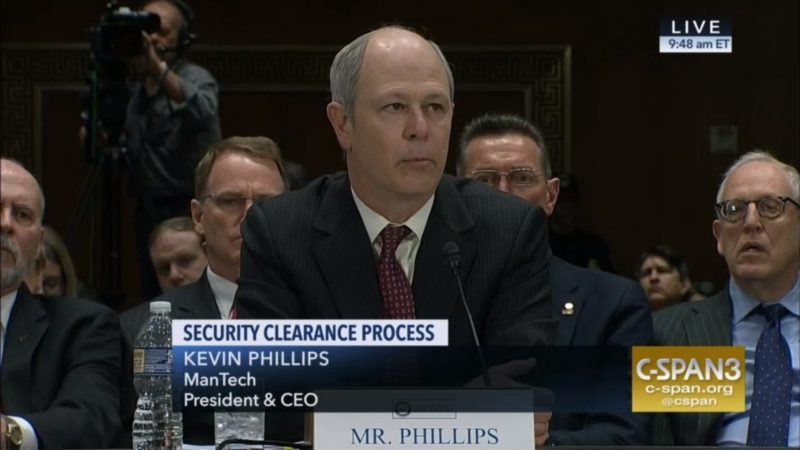 In a March 7 Senate Intelligence Committee hearing, intelligence, technology and defense officials shone the spotlight on the current security clearance backlog issue. Among the witnesses was ManTech CEO and President Kevin Phillips, who provided insight into the current backlog challenges and possible solutions.
In a March 7 Senate Intelligence Committee hearing, intelligence, technology and defense officials shone the spotlight on the current security clearance backlog issue. Among the witnesses was ManTech CEO and President Kevin Phillips, who provided insight into the current backlog challenges and possible solutions.
The backlog is industry’s No. 1 priority because it has made it difficult to hire and provide qualified talent, Phillips said. It’s not just a problem for industry, but a governmentwide issue, making it a matter of national security, he added.
These backlogs have been a problem for years now. Phillips shed light on obstacles professionals have faced throughout the years. Since 2014, the amount of time it takes to obtain clearance has more than doubled. The average time to get a TSSCI clearance takes over a year and to get secret clearance takes over eight months, resulting in a delay that creates job uncertainty for top professionals in high demand. According to Phillips, approximately 10,000 positions from the contracting community in support of the intelligence community are unfilled.
Phillips then provided the committee with his recommendations in solving the current 700,000 backlogged clearances as well as preventing one of this size in the future:
- Enable reciprocity by allowing for cross-over clearance to be done routinely and automatically.
- Create a universally accepted and enforced standard across all of government, not the 23 different processes currently in place.
- More funding is needed “to increase processing capacity, to reduce the backlog we have today, while our government partners who are working diligently to develop and implement a new system,work to develop the system of tomorrow,” Phillips said.
- Prioritize existing cases according to mission impact and national security.
- Adopt continuous evaluations and establish a framework for information sharing between government and industry about individuals holding these positions
- Obtain a concerted focus and oversight from Congress, including reinstating the Intelligence Reform and Terrorism and Prevention Act timelines
- Mobility and portability for clearances among the contracting community.
These steps are necessary in addressing the areas of government that are going unserved: weapon development, cybersecurity, analytics, maintenance and sustainment, space resilient support and the use of transformational technology.
To watch the full hearing and testimonies from Phillips and other officials, click here.

